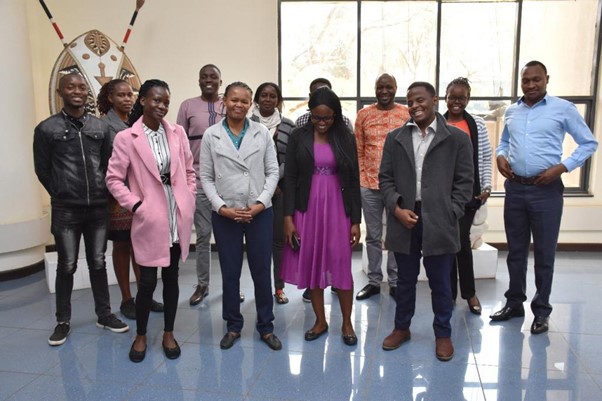Role of Librarians in fighting misinformation: A Librarian’s experience on Wikipedia
27 Juli 2024
A key goal of IFLA’s engagement with international organisations, not least the United Nations, is to create opportnities for our members to form partnerships that bring benefits to them and their communities. We’re therefore happy to share this interview with Raymond Chepkwony of the Kenya National Library Service, who tells as about his experience of working with the UN country team in Kenya.
The project in question focuses on the fight against mis- and disinformation, and provides a great example of how to combine the energy and skills of knowledge with the networks and support that the UN can provide.

IFLA: Can you tell us a bit about you?
Raymond: As a librarian at the Kenya National Library Service and an active Wikipedian, I had the opportunity to serve as a Wikipedian-in-Residence for Code for Africa. This role involved identifying and correcting misinformation surrounding the 2022 Kenya General Elections. Thanks to funding from the UN, Code for Africa appointed two librarians, including myself, to address misinformation on elections and climate change in Kenya. I focused on editing Wikipedia articles related to Kenyan elections, while my colleague, Caroline Mwaura, worked on climate change articles. Our collaboration aimed to promote accuracy and transparency in information dissemination. Through our efforts, we hoped to increase awareness and understanding within our communities
How do you see your role as a librarian in tackling misinformation
In my capacity as a librarian, my daily tasks involve curating reliable resources, educating patrons on information literacy, and combating misinformation. However, this project presented a unique opportunity to extend these efforts to the digital realm.
Our research revealed the pervasive nature of misinformation in the Kenyan political landscape, often propagated by politicians, their supporters, and even media outlets. It became clear that addressing this issue on Wikipedia was paramount to ensure accurate information reaches the public.
What have the main achievements of your partnership been, and what lessons have you learned?
Over the course of six months, our project made significant strides. We trained editors to contribute to Wikidata and Wikipedia, organized edit-a-thons, and conducted training sessions to empower editors to identify and rectify misinformation. The impact was tangible:
- More than 400 edits were made on Wikidata and Wikipedia articles related to Kenya elections.
- We created over 200 new articles on Kenya elections.
- Translated more than 50 Wikipedia articles into Kiswahili and Kikuyu languages.
- Identified and corrected numerous instances of misinformation.
Through this journey, we learned invaluable lessons. We discovered that misinformation thrives, especially during election periods, and can be spread intentionally or unintentionally by various actors. Collaboration emerged as a crucial tool in combating misinformation on Wikipedia, emphasizing the importance of community engagement and collective efforts.
Moreover, translating Wikipedia articles into local languages proved essential in ensuring accurate information reaches a wider audience, thereby bridging linguistic barriers and promoting inclusivity.
What potential do you see for collaboration between National Libraries and UN Country Teams?
Collaboration between UN Country Teams and National Libraries in Kenya and other countries presents significant potential for addressing misinformation globally. Libraries, serving as information hubs deeply embedded in communities, offer access to reliable resources, facilitate community engagement, and provide platforms for capacity building. Leveraging libraries’ understanding of cultural and linguistic contexts fosters sustainable partnerships, enabling tailored interventions to combat misinformation. This collaboration can empower individuals and organizations to promote information integrity and foster a more informed society worldwide.
What lessons can you share with others?
In conclusion, our project was a success, thanks to the dedication and collaboration of our team of editors. By creating new articles, editing existing ones, and correcting misinformation, we’ve contributed to a more informed public discourse on Kenya elections. Moving forward, I believe our efforts will have a lasting impact, ensuring that readers continue to access accurate information for years to come.